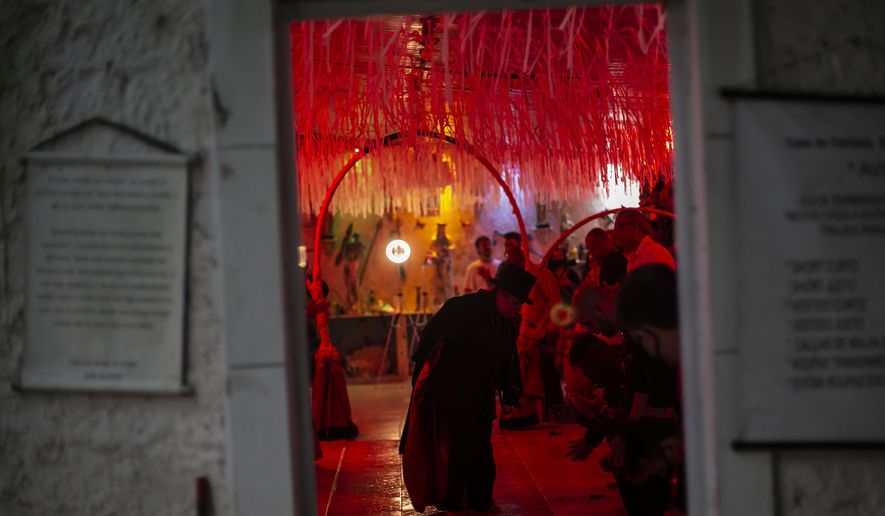RIO DE JANEIRO (AP) - Laura D’Oya, a priestess of an Afro-Brazilian religion, was at the center of the ceremony. Crouched down, she held a cigar in one of her hands and a top hat in the other. The temple in Rio de Janeiro was illuminated by red lights and dozens of practitioners sang and danced to the rhythm of an atabaque, a traditional hand drum.
The faithful of Umbanda, a religion that was born in Brazil, always perform rituals of spiritual protection as part of the pre-Carnival traditions. A spiritual mentor walked past Laura in her Casa de Caridade Santa Barbara Iansa temple and prayed to activate a protective field to shield her from bad energies.
“Many people take advantage of this period to do good actions, but others do bad things. It (the ceremony) is for protection against events that can be more common (during carnival),” Laura said before the ritual.
As Portuguese colonists brought African slaves to Brazil, the enslaved men and women developed blends of their religions with Catholicism, which today include Candomble and Umbanda. They’re practiced by a tiny minority – some 600,000 of the more than 200 million Brazilians, according to the 2010 census - and Rio de Janeiro state is home to one-quarter of them. Afro-Brazilian religions have faced increased intolerance over recent years, with some of their temples destroyed.
Despite the fact Rio suspended street parties and the Carnival parade due to COVID-19, Laura’s temple held the ceremony because they consider the period as one of disturbed energy. There is greater exposure of the human body and its sensuality, increasing the risk of accidents and other negative things, she explained.
Some protection rituals are even regularly performed at the Carnival parade grounds, known as the Sambadrome, which this year has been repurposed as a coronavirus vaccine station. Elderly Black women dressed in all white known as Bahianas usually wash the avenue before the parades to summon good energies for the public and the samba schools that stage the spectacle. Last year, one samba school’s parade centered on making a plea for people to respect Afro-Brazilian religions.
The ceremony at Laura’s temple is for both spiritual and physical protection, she said. At the end of the ritual, all the practitioners leave the temple protected, once again, against the bad energies of the Carnival.




Please read our comment policy before commenting.